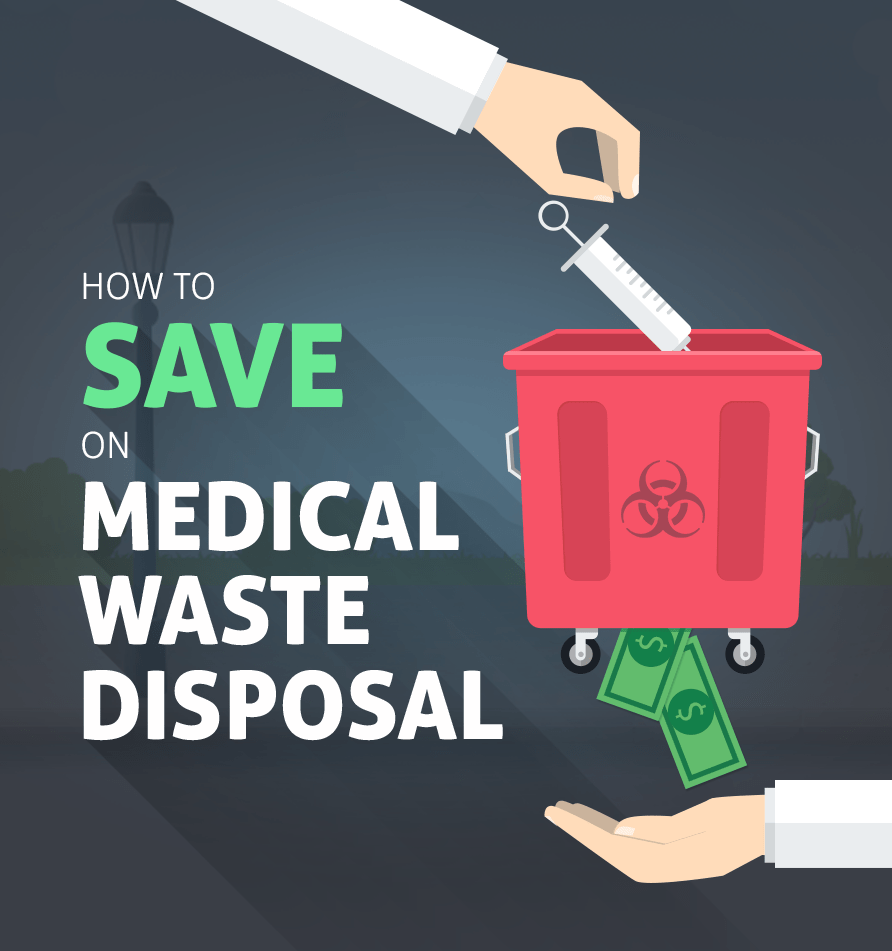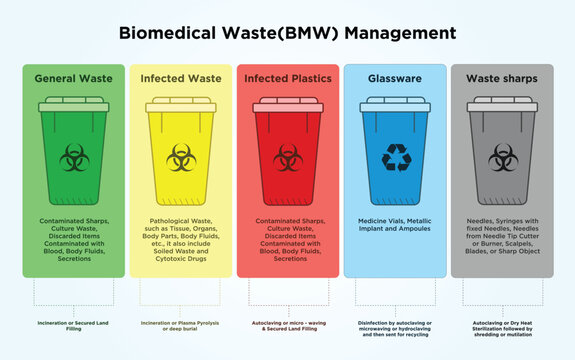Your Ally in Medical Waste Removal: Expert Service with Environmental Care
Wiki Article
Making Sure Safe Handling and Disposal of Medical Waste
Ensuring risk-free handling and disposal of medical waste is of paramount importance in medical care setups. Inappropriate monitoring of clinical waste can position significant risks to the environment, public wellness, and medical care employees. In this introduction, we will certainly explore the relevance of appropriate medical waste monitoring, the threats linked with incorrect handling and disposal, as well as the guidelines and approaches that can be carried out to ensure its safe disposal.Relevance of Appropriate Medical Waste Monitoring
Appropriate clinical waste administration is of utmost significance in ensuring the safety and security and well-being of healthcare specialists, clients, and the basic public. Clinical waste describes any type of waste created by health care centers throughout the diagnosis, therapy, or immunization of animals or people. This waste can pose severe health risks if not taken care of and taken care of appropriately.
Among the primary factors why appropriate clinical waste administration is important is to avoid the spread of contagious diseases. Medical waste, such as made use of needles, polluted dressings, and organic materials, can bring unsafe pathogens. Otherwise handled and thrown away appropriately, these pathogens can be sent to health care employees, people, waste handlers, and even the public, causing the possible episode of illness.
In addition, proper clinical waste administration assists shield the environment - medical waste removal service. Clinical waste has harmful materials, including chemicals, drugs, and radioactive substances. When not handled properly, these compounds can infect dirt, water bodies, and the air, posturing a significant risk to ecosystems and public wellness
Furthermore, efficient clinical waste administration makes certain compliance with global criteria and neighborhood guidelines. Federal governments and regulative bodies have actually developed procedures and guidelines to make sure the secure handling, storage space, transportation, and disposal of medical waste. Abiding by these laws is vital to stay clear of legal consequences and keep the track record and credibility of medical care centers.
Risks of Improper Handling and Disposal

Clients can likewise be exposed to these infectious conditions if clinical waste is not appropriately disposed of. For example, if polluted needles or other sharps are not thrown away in marked puncture-proof containers, they may inadvertently puncture people, bring about possible infections. Additionally, if medical waste is not segregated properly, there is a threat of cross-contamination in between different types of waste, further raising the opportunities of condition transmission.
Inappropriate disposal of clinical waste can additionally have destructive effects on the setting and the basic public. If medical waste is not treated and gotten rid of correctly, it can contaminate water resources, soil, and air, causing the spread of diseases and pollutants. This can have lasting effects on ecological communities and public health and wellness.
Standards for Safe Handling of Medical Waste
Implementing reliable procedures for the risk-free handling of clinical waste is important in ensuring the defense of health care specialists, individuals, and the general public. These guidelines are important in reducing the threats connected with the handling and disposal of clinical waste, such as infections, injuries, and environmental pollution.Primarily, healthcare centers should establish a comprehensive waste administration strategy that complies with regional, national, and worldwide laws. This plan must consist of clear guidelines on waste partition, packaging, labeling, transportation, and storage. It is vital to divide various kinds of waste, such as sharps, contagious materials, pharmaceuticals, and non-hazardous waste, to protect against cross-contamination and promote safe disposal.
Furthermore, health care employees must receive thorough training on appropriate waste handling strategies. They need to be educated on the potential threats of medical waste, the proper use individual safety equipment (PPE), and the right treatments for handling, carrying, and disposing of different sorts of waste.
Furthermore, medical care centers need to routinely keep an eye on and audit their waste monitoring techniques to make certain conformity with standards. This includes conducting regular evaluations, evaluating waste handling procedures, and supplying responses and training to team participants.
Efficient Techniques for Waste Disposal
To make sure the safe handling and disposal of medical waste, it is vital to employ effective techniques for waste disposal. Clinical waste can posture considerable dangers to public health and wellness and the atmosphere if not handled and disposed of effectively. Healthcare centers and waste administration organizations should implement ideal methods to reduce these risks.One effective method for waste disposal is partition. It involves dividing various sorts of medical waste based upon their qualities. Segregation enables the appropriate treatment and disposal of each waste classification, decreasing the potential for contamination or damage. Healthcare centers should give clear standards and training to team member on how to segregate waste appropriately.

In addition, healthcare facilities ought to work together with qualified waste management business to make sure appropriate disposal of clinical waste. These firms have the competence and tools required to securely dispose and deal with of medical waste in compliance with guidelines and ideal techniques.
Training and Education And Learning for Medical Care Professionals
Medical care experts play a critical function in guaranteeing the safe handling and disposal of medical waste through detailed training and education. It is necessary for medical care carriers to have a deep understanding of the possible risks connected with clinical waste and the correct protocols for its management. By receiving correct training, health care experts can minimize the prospective transmission of transmittable diseases, prevent ecological contamination, and protect both themselves and the public.
Moreover, training programs need to highlight the use of personal safety devices (PPE) and correct hand hygiene methods when handling clinical waste. medical waste removal. Medical care professionals need to understand just how to properly dispose and make use of of PPE to shield themselves from prospective direct exposure to dangerous products. They need to also be educated on the significance of regular handwashing and the proper use of hand sanitizers to reduce the spread of transmittable illness
Proceeding education and routine updates on clinical waste monitoring practices are vital for healthcare experts. As guidelines and guidelines advance, it is vital to keep doctor notified regarding any kind of changes in protocols and best methods. This will guarantee that they remain current and preserve a high requirement of safety and security in managing and disposing of clinical waste.
Verdict
In conclusion, proper handling and check over here disposal of medical waste is crucial to ensure the safety and security of health care experts, individuals, and the atmosphere. By adhering to these techniques, we can reduce the potential threats connected with medical waste.Medical waste refers to any kind of waste produced by healthcare centers during the medical diagnosis, treatment, or immunization of humans or pets. If clinical waste is not segregated effectively, there is a threat of cross-contamination between various types of waste, more enhancing the possibilities of disease transmission.
It is crucial to separate various types of waste, such as sharps, infectious materials, drugs, and non-hazardous waste, to prevent cross-contamination and advertise safe disposal. WasteX Medical Waste Disposal.
To ensure the secure handling and disposal of clinical waste, it is essential to utilize efficient techniques for waste disposal. In addition, health care centers should establish a routine waste collection and transport schedule to stop waste buildup and reduce the danger of crashes or contamination.
Report this wiki page